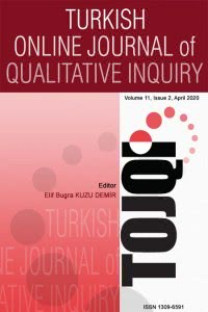Adile Aşkım Kurt, Yavuz Akbulut, H.Ferhan Odabaşı, Beril Ceylan, Elif Buğra Kuzu, Onur Dönmez, Özden Şahin İzmirli
Factors Motivating and Hindering Information and Communication Technologies Action Competence
Factors Motivating and Hindering Information and Communication Technologies Action Competence
Information and Communication Technologies Action Competence (ICTAC) can be defined as “individuals’ motivation and capacity to voluntarily employ their ICT skills for initiating or taking part in civic actions”. Since academic staff and teachers in ICT related fields have crucial roles in training action-competent individuals, this study aimed to determine the views of preservice teachers and instructors in Computer Education and Instructional Technology (CEIT) departments about the motivating and hindering factors regarding ICTAC. Researchers used purposeful sampling technique and identified seven instructors and 16 students attending outlier CEIT departments from four different Turkish state universities. Since there is no contemporary framework on factors motivating or hindering ICTAC, the study was conducted with a qualitative approach and the data were collected through semi-structured interviews. Factors motivating and hindering ICTAC were identified through a content analysis. Findings of the study are believed to guide ICT and ICT education professionals in training students with higher levels of ICTAC and guide the course developers to focus on relevant social responsibility issues
Keywords:
Information and communication technologies action competence, Computer Education and Instructional Technology Departments, higher education,
___
- Bassellier, G., Reich, B. H., & Benbasat, I. (2001). Information technology competence of business managers: A definition and research model. Journal of Management Information Systems, 14 (4), 159-182.
- Breiting, S., Hedegard, K., Mogensen, F., Neilsen, K., & Schnack, K. (2009). Action competence, conflicting interests and environmental education. Copenhagen, Denmark: Aarhus University Research Programme for Environmental and Health Education, DPU.
- Ehlers, U. (2007). A new pathway for e-learning: From distribution to collaboration and competence in e-learning, AACE Journal, 16(2), 187-202.
- Internet Usage Statistics (2012). Retrieved November 25, 2012, from http://www.internetworld- stats.com/stats.htm
- Kurt, A.A., Akbulut, Y., Odabaşı, H.F., Dönmez, O., Kuzu, E.B., Ceylan, B., et al. (2012). Faculties’ information and communication technologies action competencies. Egitim Arastirmalari- Eurasian Journal of Educational Research, 49/A, 261-274.
- Miles, M. B., & Huberman, A. M. (1994). Qualitative data analysis: An expanded sourcebook. Thousand Oaks, CA: SAGE Publications.
- Mogensen, F. (1997). Critical thinking: A central element in developing action competence in health and environmental education, Health Education Research: Theory and Practice, 12 (4), 429- 436.
- Neuman, W. L. (2003). Social research methods: Qualitative and quantitative approaches. Boston: Allyn and Bacon.
- Odabaşı, H. F., Kurt, A. A., Akbulut, Y., Dönmez, O., Ceylan, B., Şahin İzmirli, Ö., Kuzu, E. B., & Karakoyun, F. (2011). Bilgi ve iletişim teknolojileri eylem yeterliliği. Anadolu Journal of Educational Sciences International, 1(1), 36 – 48.
- Scott, W. (2011). Sustainable schools and the exercising of responsible citizenship: A review essay. Environmental Education Research, 17(3), 409-423.
- TÜİK (2010, August). Information and communication technology (ICT) usage survey on households and individuals. Ankara: Turkish Statistical Institute.
- TÜİK (2012, August). Information and communication technology (ICT) usage survey on households and individuals. Ankara: Turkish Statistical Institute.
- Yıldırım, A. & Şimşek, H. (2006). Sosyal bilimlerde nitel araştırma yöntemleri (6. basım). Ankara: Seçkin Yayıncılık.
- ISSN: 1309-6591
- Başlangıç: 2010
- Yayıncı: Prof.Dr. Abdullah Kuzu
Sayıdaki Diğer Makaleler
Teacher Representations of English as a Foreign Language: Case Study of Two Teachers in Turkey
Implications from the Diagnosis of a School Culture at a Higher Education Institution
An Interpretive Study into Elementary School English Teachers’ Beliefs and Practices in Turkey
Factors Motivating and Hindering Information and Communication Technologies Action Competence
Adile Aşkım Kurt, Yavuz Akbulut, H.Ferhan Odabaşı, Beril Ceylan, Elif Buğra Kuzu, Onur Dönmez, Özden Şahin İzmirli
